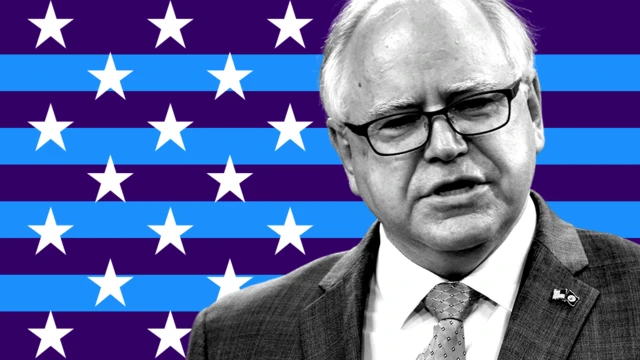Recently, a House GOP Committee has taken a keen interest in investigating Tim Walz’s connections to China. This investigation is part of a broader effort by the committee to examine the influence of foreign countries, particularly China, on American politics and policies.
House GOP Committee Investigates Tim Walz’s China Ties
The committee’s investigation has raised questions about the nature of Walz’s past dealings with China. They are particularly interested in understanding how his relationships with Chinese officials and businesses might have influenced his political decisions. The committee is also exploring whether Walz’s ties to China could pose any national security risks to the United States.
One of the key areas of concern for the committee is the potential influence that Chinese officials might have had on Walz. They are looking into whether his past support for pro-China policies was driven by any undue pressure or incentives from Chinese sources. Additionally, the committee is examining whether Walz’s ties to China could have had any impact on his positions regarding trade and economic policies.
The investigation has led to a broader discussion about the role of foreign influence in American politics. Many people are concerned that foreign countries, especially China, could be using their relationships with American politicians to sway decisions in their favor. The committee’s findings could have significant implications not only for Walz but also for how the United States addresses foreign influence in the future.
Tim Walz, a well-known political figure, has recently found himself at the center of attention due to his complex and shifting relationship with China. Over the years, Walz’s connections with China have gone through significant changes, which have sparked a lot of debate and scrutiny.
Tim Walz and His Changing Ties with China
Originally, Walz was known for his friendly ties with China. These connections were seen as part of a broader effort to build positive relations between the United States and China. However, as global politics have evolved, so too have Walz’s ties with the Asian superpower.
In the past, Walz was a supporter of policies that promoted cooperation between the United States and China. He believed that working together could benefit both countries, especially in areas like trade, education, and technology. This approach was not uncommon among American politicians at the time, as many saw China as a key partner in the global economy.
However, the relationship between the two countries began to change, especially during the presidency of Donald Trump. Trump’s administration took a much tougher stance on China, focusing on issues like trade imbalances, intellectual property theft, and national security concerns. As the U.S.-China relationship grew more strained, Walz’s own connections with China began to come under closer scrutiny.
China’s Changing Stance on U.S. Politics and Walz’s Shifting Position
China’s attitude toward U.S. politics has also evolved over time, and this shift has had an impact on Walz’s relationship with the country. In the past, China was more supportive of U.S. politicians who favored cooperation and engagement. However, as tensions between the two countries have increased, China’s stance has become more complicated.
During the Trump administration, China’s support for certain U.S. politicians became more strategic. The Chinese government began to favor politicians who were seen as more sympathetic to their interests or who could be used to counterbalance tougher policies from the U.S. government. This shift in strategy led to a more complex and sometimes contradictory relationship between Chinese officials and American politicians, including Tim Walz.
His previous support for cooperation with China was increasingly at odds with the growing concerns about China’s influence on American politics. This has led to a reassessment of his ties to China and a shift in his public positions.
Tim Walz has started to distance himself from his earlier pro-China stance, recognizing the changing geopolitical landscape and the concerns raised by the House GOP Committee’s investigation.
This shift reflects a broader trend among American politicians who are rethinking their relationships with China in light of the current tensions.
The changing dynamics of U.S.-China relations have put Tim Walz in the spotlight, and his evolving stance on China is likely to continue to be a topic of discussion in the coming months. The House GOP Committee’s investigation, along with the broader public debate, will play a key role in shaping how Walz’s ties to China are perceived and what impact they might have on his political career.


